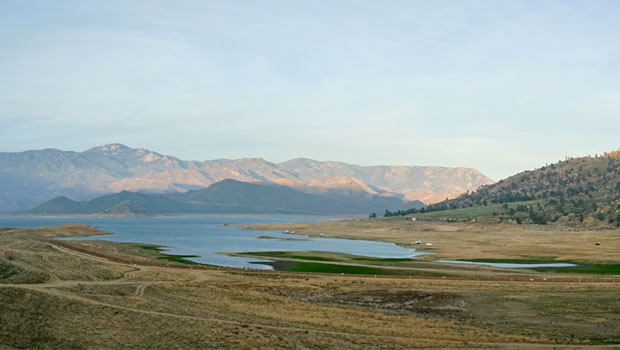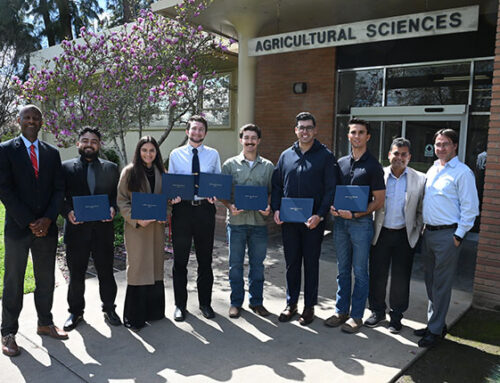A Fresno State study has produced valuable new information on the impact of the drought, including severe economic loss in agricultural revenue, public health impacts, underemployment and migration for farm labor, especially in disadvantaged San Joaquin Valley communities, and residential water use facts and fiction.
Among the findings associated with the drought:
- As much as $3.3 billion in losses to agricultural revenue
- Public health impacts such as elevated instances of Valley Fever, West Nile Virus and diarrheal illness
- A potential increase in mental health issues, including anxiety, stress and depression
The main recommendations drawn:
- Develop water budgets for all citizens and stakeholders
- Recognize the true value of water and price it accordingly
- Spark deep political discussions about the future availability of water in California and how it is impacted by the current laws and policies on water
- Avoid single uses of water.
- Explore non-conventional sources of water.
The goal of the research was to produce for the first time, reliable data on the drought’s impact in the San Joaquin Valley – the state’s farming heartland, said Provost Lynnette Zelezny, who directed the study. That was accomplished by the University’s Water Cohort Team. The university created the team to engage the campus and the public in dialogue to build awareness of water challenges and to undertake projects such as the drought study.
The team includes faculty experts in water management, science education, civil engineering, public health, urban/regional planning, earth and environmental sciences, and digital library resources.
Since 2012, the San Joaquin Valley – and California as a whole – has experienced the most severe drought conditions in its recorded history. Research indicates that the current drought is the most severe in the last 1,200 years.
The Fresno State team studied the impact of the drought on the eight Valley counties: Fresno, Kern, Kings, Madera, Merced, San Joaquin, Stanislaus and Tulare.
“The story of the San Joaquin Valley has largely gone untold,” said Dr. Gillisann Harootunian, director of University Initiatives and editor of the report. “The San Joaquin Valley has perhaps been included as one chapter within the history of the State of California. This report makes our region a focus of the national conversation on the drought,” she said.
A series of editorial “snapshots” and photo and video vignettes provide background and tell stories of the human impact of the drought. The report also includes new findings on residential water use, plus appendices with interactive maps, an annotated bibliography, a list of key contacts, and URL links to data sets, government agencies, and online reports and white papers.
The mission of the Fresno State Water Cohort is to educate students and the community to be the water problem solvers of the future. The cohort studies water quality, conservation, delivery systems, supply development, recycling, drought-tolerant crops, new technologies and current challenges.
The study was made possible by the Wells Fargo Clean Technology and Innovation Grant Program. Earlier this year, Fresno State, along with two Valley nonprofit organizations, were awarded a combined $125,000 to support drought-related efforts including studying the economic and social impact of the drought on the San Joaquin Valley, providing assistance to Valley residents impacted by the drought, and educational efforts on water management and usage.
The Wells Fargo Clean Technology and Innovation Grant Program began in 2012 as part of Wells Fargo’s commitment to provide $100 million to environmentally-focused nonprofits, colleges and universities by 2020. It is funded by the Wells Fargo Foundation and is strategically aligned with the company’s vision and values to foster economic development, especially in underserved communities, to accelerate the global “green” economy.
For more information, contact Harootunian, gharootunian@csufresno.edu, 559.278.4850.
A full copy of the report is available at www.fresnostate.edu/academics/drought/.



